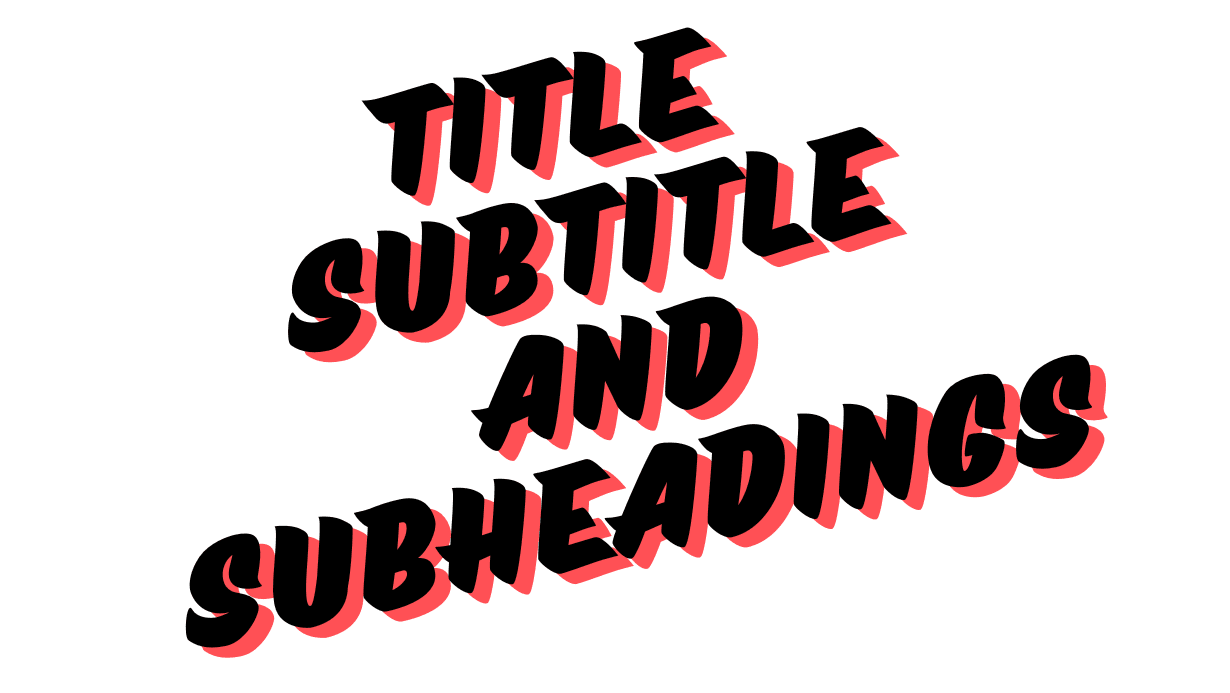Understanding the differences between a title, subtitle, and subheadings is crucial for organizing and structuring content effectively. Here’s a breakdown of each:
Title or Heading
Definition: The title is the main heading of a document, article, or piece of content. It is the first thing readers see and is designed to grab their attention and give them an idea of what the content is about.
Characteristics:
- Purpose: To attract readers and convey the primary focus or theme of the content.
- Position: Typically appears at the top of the page or post.
- Format: Often larger and bolder than other text, sometimes in a different font or color.
- Examples: “How to Fix iPad White Screen Issues” or “10 Tips for Effective Time Management”
Subtitle
Definition: A subtitle is a secondary heading that provides additional context or clarification for the title. It often elaborates on or narrows down the focus of the main title.
Characteristics:
- Purpose: To give more detail or specify the aspect of the topic covered in the title.
- Position: Usually placed directly below the title.
- Format: Smaller than the title but still prominent, often in italics or a different font style.
- Examples: “How to Fix iPad White Screen Issues: Quick and Easy Solutions” or “10 Tips for Effective Time Management: Strategies for Boosting Productivity”
Subheadings
Definition: Subheadings are used to divide content into sections and make it easier to read and navigate. They break down the main body of text into manageable chunks, each focusing on a specific aspect of the topic.
Characteristics:
- Purpose: To organize content, highlight key points, and improve readability.
- Position: Found throughout the main body of the content, between sections or paragraphs.
- Format: Typically smaller than the title and subtitle, but still distinct, often bold or in a slightly larger font than the body text.
- Examples: In an article about fixing an iPad white screen, subheadings might include
- 1. Understanding the White Screen Issue
- 2. Quick Fixes for Immediate Relief
- 3. Advanced Solutions for Persistent Problems.
Summary
- Title: Main heading that captures the essence of the content and attracts readers.
- Subtitle: Provides additional context or detail related to the title.
- Subheadings: Break down the content into sections for easier reading and organization.
Using these elements effectively helps structure your content in a way that is engaging and easy to navigate, enhancing the reader’s experience.
